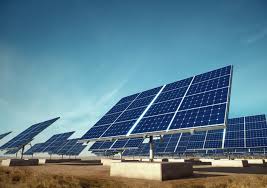Odyssey Energy Solutions, a digital platform dedicated to renewable energy project development, has secured a $7.5 million funding facility from British International Investment (BII), the United Kingdom’s development finance institution. The capital is earmarked to accelerate the deployment of solar mini-grids across Nigeria, providing flexible financing options to renewable energy developers.
This investment directly supports the Distributed Access through Renewable Energy Scale-up (DARES) programme—a flagship Nigerian government initiative implemented by the Rural Electrification Agency (REA) and supported by the World Bank.
Nigeria faces one of the world’s most significant electricity access challenges. An estimated 90 million people—nearly half the population—lack connection to the national grid. This energy shortfall severely constrains economic growth, hampers healthcare delivery, and undermines educational opportunities, particularly in rural and peri-urban regions.
Solar-powered mini-grids—localized, small-scale electricity networks often paired with battery storage—are increasingly recognized as a viable and scalable alternative to costly and slow national grid expansion. They can deliver affordable, reliable, and clean power to underserved communities at a fraction of the time and cost of centralized infrastructure.
Through the BII facility, mini-grid developers will be able to procure critical equipment such as solar photovoltaic panels, energy storage systems, and other high-quality components. This directly addresses one of the largest barriers facing the sector: upfront financing for equipment procurement.
Piyush Mathur, Co-Founder and Managing Director of Odyssey Energy Solutions, emphasized the significance of the partnership:
“BII has demonstrated a progressive and practical approach to unlocking financing challenges in distributed energy. Their support allows us to offer flexible, affordable financing options that meet developers where they are, so that we can collectively accelerate electrification across Nigeria.”
DARES is regarded as one of Africa’s most ambitious distributed renewable energy initiatives, with a target to provide electricity access to 17.5 million Nigerians. The programme envisions deploying up to 1,500 solar mini-grids and 1.5 million standalone solar home systems.
At the core of this effort is Odyssey’s purpose-built digital platform, which serves as the programme’s official operational infrastructure. The platform enables:
- Developers to submit, track, and manage project proposals.
- REA to evaluate applications efficiently, monitor project performance in real time, and disburse results-based financing with transparency.
This digital system ensures accountability and scalability in managing such a vast and complex undertaking. Additionally, the platform integrates geospatial intelligence tools from VIDA, allowing developers to use advanced mapping and site-identification data for optimized project planning.
The funding facility is also being framed as a vote of confidence in Nigeria’s clean energy transition and a model for successful public-private collaboration.
Benson Adenuga, BII’s Regional Director for West Africa, underlined the importance of mini-grids in tackling the electricity gap:
“About 90 million people in Nigeria do not have access to electricity. Mini-grids powered by clean and affordable energy sources have a vital role to play in rapidly reducing that number. I am delighted that BII is partnering with Odyssey to accelerate the development of such projects.”
This aligns closely with the UK’s strategic partnership with Nigeria. Jonny Baxter, British Deputy High Commissioner in Lagos, highlighted the broader significance:
“This is a signal that opportunities for the private sector to drive forward the renewable energy revolution in Nigeria and across Africa are growing.”
The combination of international development finance (via BII), government leadership (through REA), and a digital project management backbone (from Odyssey) represents a potential blueprint for addressing energy poverty in emerging economies.
By leveraging innovative financing, advanced technology platforms, and multilateral partnerships, the DARES initiative demonstrates how distributed renewable energy can rapidly scale access to clean power—first in Nigeria, and potentially across other underserved regions in Africa and beyond.






